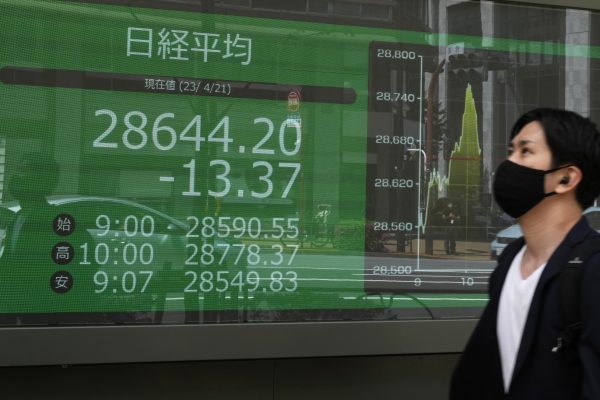The Japanese stock market has experienced a remarkable resurgence, with the Nikkei 225 index more than doubling in value since 2012. This article examines the factors fueling this rally and highlights the distinctions from the market boom of the 1990s.

Factors Driving the Japanese Stock Market’s Resurgence
Improving Economy and Record Low Unemployment: Japan’s economy has been steadily growing, supported by robust domestic demand and increased government spending. As a result, unemployment in the country has reached record lows. This favorable economic environment has had a positive impact on corporate profits, enhancing investor confidence and driving the stock market rally.
Benefiting from Global Economic Recovery: The ongoing global economic recovery has played a significant role in Japan’s stock market resurgence. As economies worldwide rebound, the demand for Japanese goods and services has increased. Japanese exporters, in particular, have seen their profits rise, bolstering the overall performance of the stock market.
Shifting Investor Sentiment: Historically, investors have been cautious about investing in Japan due to concerns about slow growth and weak corporate governance. However, recent years have witnessed a shift in sentiment as Japan has undertaken substantial reforms to improve its economy and corporate governance practices. These reforms have instilled greater confidence among investors, making Japanese stocks more appealing and contributing to the market rally.
Comparison with the 1980s Rally:
It is crucial to highlight the differences between the current rally and the stock market bubble of the 1980s to provide context for the sustainability of the current growth:
The 1980s Rally: During the 1980s, the Japanese stock market experienced an unprecedented speculative bubble driven by excessive speculation and inflated asset prices. However, this bubble eventually burst, leading to a prolonged period of economic stagnation and a significant decline in stock market values.
The Current Rally: In contrast, the current rally is driven by more fundamental factors, such as an improving economy, increased global demand for Japanese goods and services, and enhanced investor confidence due to corporate governance reforms. This suggests that the current surge is not solely reliant on speculation and may have a more sustainable foundation.
Factors Suggesting Sustained Growth:
Continued Economic Improvement: Japan’s improving economy, supported by domestic demand, government stimulus, and ongoing reforms, provides a solid foundation for the stock market rally. As long as the economic growth trajectory remains positive, it is likely to contribute to the sustained growth of the Japanese stock market.
Ongoing Global Economic Recovery: The ongoing global economic recovery is a critical factor in sustaining the Japanese stock market rally. As economies worldwide rebound, the demand for Japanese exports is expected to continue rising, benefiting Japanese companies and driving stock market growth.
Positive Investor Sentiment: The shift in investor sentiment towards Japanese stocks is a significant driver of the current rally. The implementation of corporate governance reforms has enhanced transparency and accountability in Japanese companies, making them more attractive to both domestic and foreign investors. This positive sentiment can further fuel the stock market’s upward trajectory.
Risks to the Japanese Stock Market:
While the outlook for the Japanese stock market is optimistic, several risks must be considered:
Global Economic Slowdown: A slowdown in the global economy could adversely affect Japan’s export-oriented companies and dampen investor confidence, leading to a potential decline in stock market performance.
Political Crisis in Japan: Any political instability or governance issues in Japan could undermine investor confidence and have a negative impact on the stock market. It is crucial for the government to maintain stability and continue implementing necessary reforms to sustain the market rally.
Natural Disasters: Japan is prone to natural disasters such as earthquakes, tsunamis, and typhoons, which can disrupt economic activities and negatively impact the stock market.
Overall, The Japanese stock market’s remarkable rally is driven by a combination of factors, including an improving economy, increased global demand, corporate governance reforms, and shifting investor sentiment. While it is still too early to determine the rally’s longevity, the positive economic conditions, ongoing global recovery, and improved investor confidence provide a favorable outlook for the Japanese stock market. However, it is essential to monitor potential risks such as a global economic slowdown, political instability, or natural disasters that could impact the market’s future performance.




